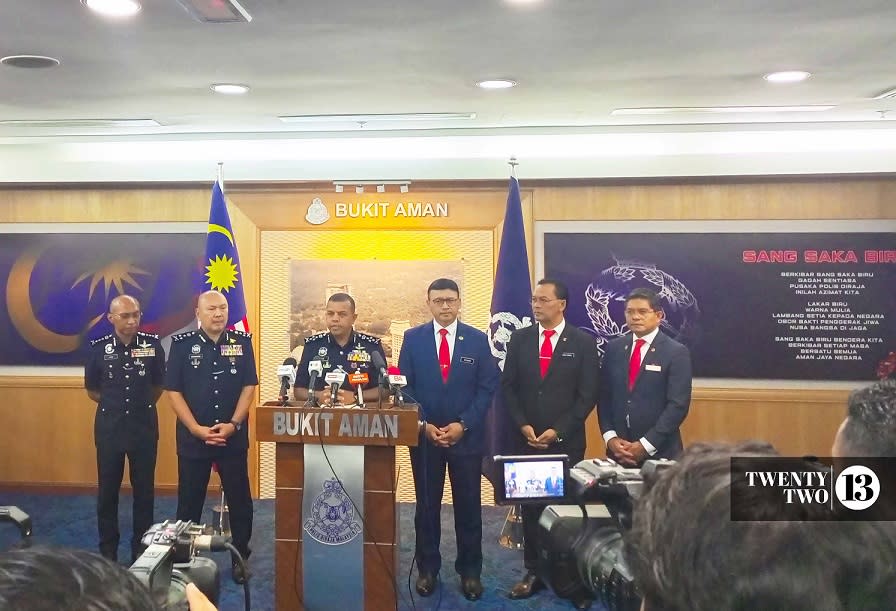Police strengthen ‘evolving’ collaboration via RM1.2m contribution to UKM in war against drugs

The strategic collaboration forged in 2022 between the Royal Malaysia Police and Universiti Kebangsaan Malaysia, continues to evolve with an RM1.2 million contribution by the force for research and development in the fight against new psychoactive substances (NPS).
Deputy Inspector-General of Police, Datuk Seri Ayob Khan Mydin Pitchay, described the commitment as “evolving”, adding that more initiatives will be carried out in this “long-term” relationship.
“The RM1.2 million contribution will be used to lease and purchase instruments that will be used in the research and development aimed at fighting NPS,” said Ayob.
“We will also explore new elements, to strengthen our collaboration in our fight against the distribution of drugs in an effective manner.”
He added the collaboration also includes in the area of education. Eight police officers will undergo courses at UKM to effectively tackle the NPS menace.
Ayob said this during the mock cheque presentation ceremony at Bukit Aman in Kuala Lumpur, this morning. Present were UKM academicians Professor Datuk Dr Ekhwan Toriman, Professor Datuk Dr Wan Kamal Mujani, and Professor Dr Mohammad Kassim.
Right after the press conference, representatives from the force and UKM met for a meeting. Such meetings have been going on since the Memorandum of Understanding was signed between both parties in 2022.
The focus of the strategic collaboration includes research and development into the active substances to create NPS. Police and the Poisons Board (under the Health Ministry) hope to come up with frameworks and to tidy up the law to ensure new drugs are listed and classified as illegal.
The research will also look into chemical substances that make people more aggressive. Ayob said that a large number of drug addicts were involved in hard crimes.
The research and development will also study the dosage of addiction and the types of drugs used, in order to help law enforcement officers nab culprits and solve cases.
He also noted that the exercise will also see the development of electrode biosensors – test strips that are more accurate in detecting NPS – and new applications, techniques, and tools to locate drug labs, especially in gated and guarded communities, and high-end neighbourhoods in Malaysia.
In March 2023, the United Nations Office on Drugs and Crimes, and Malaysia’s National Anti-Drug Agency, held a two-day dialogue to address the wide range of NPS in recent years.
The dialogue was the first meeting among forensic experts, health professionals, law enforcement, regulatory bodies, and academic institutions working in the field of drugs, to consider and discuss the necessary steps to create an early warning system for the country.
Separately, Ayob said Malaysian police have no intention of bringing back a Malaysian drug kingpin who was arrested in Laos recently.
The 41-year-old was arrested in Vientiane on Dec 29, following a joint operation by Thai and Laotian police. The suspect had been allegedly working with drug networks across Thailand, Malaysia, China, Singapore, and Laos.
“There are no plans to bring him back. Let him face the charges in Thailand. They (Thai authorities) have enough evidence on him,” said Ayob.
The post Police strengthen ‘evolving’ collaboration via RM1.2m contribution to UKM in war against drugs appeared first on Twentytwo13.


